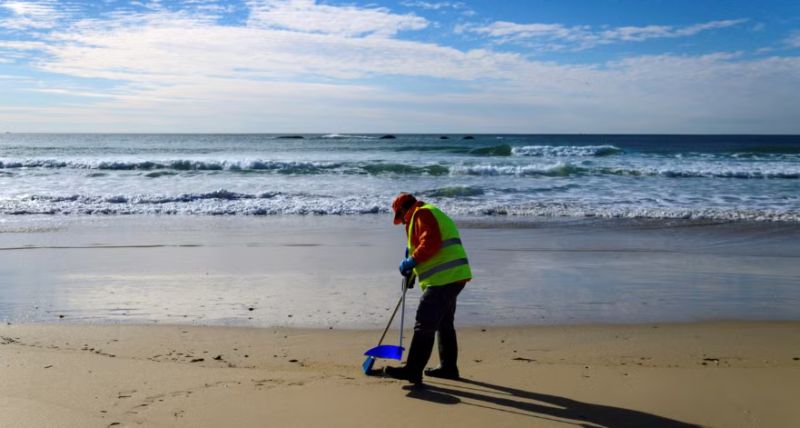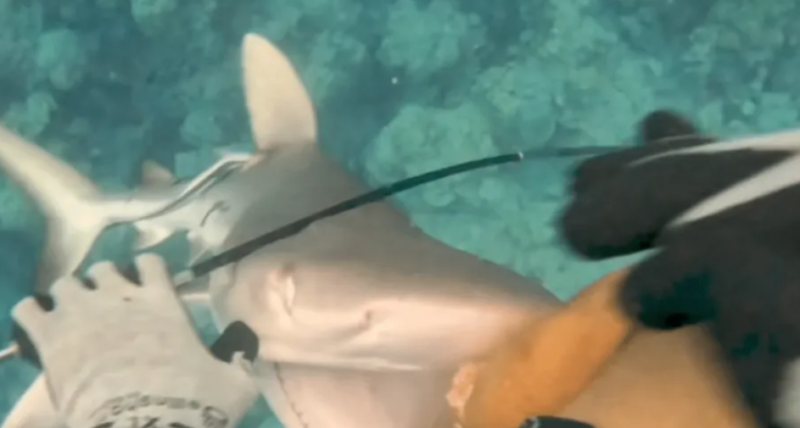France will host next June the first major event on ocean protection, organized under the auspices of the UN. The Tara Ocean Foundation intends to seize this opportunity to unite more countries against plastic pollution and deep-sea mining.
« We Will Only Have One Chance in Our Lifetime to Host an Ocean Conference in France, » Says Tara Ocean
« We will only have one chance in our lifetime to host an ocean conference in France, » enthuses Romain Troublé, Executive Director of Tara Ocean. Despite rising ocean temperatures, coastal erosion, ocean acidification, and the slowdown of deep-sea currents, the foundation dedicated to marine ecosystems remains decidedly optimistic as the third United Nations Ocean Conference (UNOC 3, for insiders) approaches.
After two smaller-scale editions—held in New York in 2017 and Lisbon in 2022—the UN is finally organizing its first high-level event on ocean protection this June in Nice, co-hosted by France and Costa Rica.
Five Days of Negotiations Between Nations
The highlight of the event will be the five days of negotiations between states, from June 9 to 13. Tara Ocean will closely monitor these discussions, aiming to influence the content of the final political declaration—similar to a COP summit. « Until now, there has been no systemic and holistic vision of the ocean. It is important to remember that its governance is highly fragmented, divided between climate and biodiversity issues, with 18 UN agencies involved, » emphasizes Romain Troublé.
A Historic Moment, But Not a Revolution
The upcoming conference will be historic—but not revolutionary. The final declaration, which is non-binding for states, is already largely defined. The key challenge will be to push its commitments as far as possible. The most crucial aspect will be the full support of Goal 14, which states the need to « conserve and sustainably use the oceans, seas, and marine resources for sustainable development. »
Making Ocean Protection the Norm
Beyond the official negotiations, the real impact may come from what happens around them. Tara Ocean has high hopes for new coalitions of countries that could emerge to support concrete actions. The foundation itself has several proposals, starting with the « Let’s Be Nice to the Ocean » initiative, launched in collaboration with Varda Group. This initiative aims to establish ocean protection as the default principle, particularly for international waters, deep-sea ecosystems, and the Southern Ocean (Antarctica).
« It should be up to those who want to exploit ocean resources to prove that their actions are harmless to ecosystems, not up to NGOs to prove the damage. The burden of proof must be reversed! » explains André Abreu, Director of International Policies at Tara Ocean.
A task force of international legal experts will also be launched on June 9 at Villa Arson. Its mission? Draft a legal text that could be adopted at the next UN Ocean Conference in 2028. But beyond the legal aspect, this initiative aims to mobilize media attention and rally support for a moratorium on deep-sea mining, which could be challenged next summer in Jamaica by the International Seabed Authority (ISA).
Ocean Surveillance and Marine Protected Areas
Tara Ocean is also advocating for a technical surveillance system to ensure that no vessel can disappear from radar. Today, some ships deactivate their AIS (Automatic Identification System) to engage in illegal fishing.
Additionally, the foundation supports:
- The International Panel for Ocean Sustainability (IPOS), which seeks to unite leading scientific experts on ocean protection.
- The goal of 30% Marine Protected Areas by 2030.
- The ratification of the High Seas Biodiversity Treaty (BBNJ), a crucial international agreement for ocean conservation.
A Global Alliance to Cut Plastic Production by 50%?
Why not use this summit as an opportunity to rally nations around a commitment to reduce global plastic production by at least 50%? This goal aligns with the ongoing negotiations for the International Treaty to End Plastic Pollution.
« It may seem like an ambitious figure, but it’s not as unrealistic as it sounds—and it wouldn’t harm our economy. This would simply bring us back to the production levels of 2017, just eight years ago, » explains Henri Bourgeois-Costa.
Source: capital




